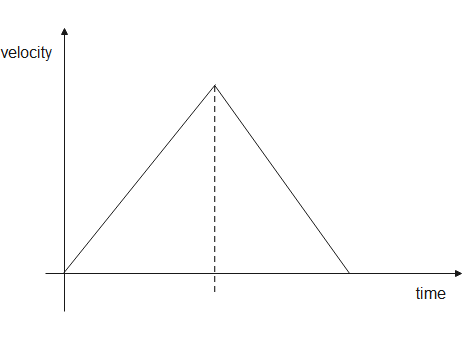Question
Question: How would zero velocity and non-zero acceleration be represented on a velocity-time graph?...
How would zero velocity and non-zero acceleration be represented on a velocity-time graph?
Solution
The graph between velocity and time is a straight line graph and its slope is the tan of the angle made by the line with the x-axis. When acceleration is non zero, velocity changes continuously as long as acceleration is not zero. When acceleration is positive, velocity increases. While, when acceleration is negative, velocity decreases.
Complete answer:
Velocity is the change in displacement that takes place per unit time. Its SI unit is ms−1.
v=td
Here, v is the velocity
d is the displacement of the object
t is time taken
The acceleration is the change in velocity that takes place in unit time. Its SI unit is ms−2
a=tv−u
Here, a is the acceleration
v is the final velocity
u is the initial velocity
t is time taken
When a graph is drawn between velocity and time, the velocity is the dependent variable and hence taken on the y-axis while time is the independent variable taken on the x-axis.
Let us assume that the acceleration is a constant, therefore we can use the equation of motion,
v=u+at
Here, v is the final velocity
u is the initial velocity
a is the acceleration
t is the time taken
The above equation is similar to the equation of a line-
y=mx+c
v=at+u
Comparing both equations we can say that acceleration is the tangent of the line. Therefore, its graph will be-

When tangent is positive, the line makes an acute angle with x-axis, when tangent is negative the line makes an obtuse angle with the y-axis.
For zero velocity, the x-axis is the line representing zero velocity as on x-axis y=0
Therefore, zero velocity is represented by the x-axis on the graph and accelerated motion is represented by a straight line.
Note:
If acceleration is non-zero, the graph will be a curve. When acceleration is acting on a body, external forces are acting on it by Newton’s second law. The slope of the graph between velocity and time is given by dtdx (the change in displacement is dx and time taken is dy).
